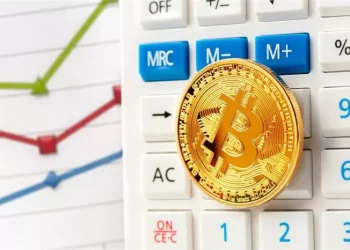In the rapidly expanding world of cryptocurrency, one of the most crucial decisions for both novice and experienced investors is choosing the right cryptocurrency exchange. A cryptocurrency exchange serves as a platform where users can buy, sell, and trade various cryptocurrencies. With the increasing number of exchanges available, each with its own set of features, fees, and security measures, understanding the key considerations is essential to ensure a safe and profitable trading experience.
Understanding Cryptocurrency Exchanges
At their core, cryptocurrency exchanges act as intermediaries between buyers and sellers in the digital currency market. They provide a marketplace where users can exchange traditional fiat currencies, such as the US dollar or euro, for cryptocurrencies like Bitcoin, Ethereum, or Litecoin. Some exchanges also allow trading between different cryptocurrencies, enabling users to diversify their digital asset portfolios.
There are two main types of cryptocurrency exchanges: centralized exchanges (CEXs) and decentralized exchanges (DEXs). Centralized exchanges are the more traditional type, operating under a central authority. These exchanges hold users’ funds in custody, match buy and sell orders, and manage the overall trading process. They typically offer a user – friendly interface, high liquidity, and a wide range of trading pairs. Examples of well – known centralized exchanges include Binance, Coinbase, and Kraken.
On the other hand, decentralized exchanges operate on blockchain technology, eliminating the need for a central authority. In DEXs, users retain control of their funds through private keys, and trades are executed directly between peers. DEXs offer greater privacy and security as they are less vulnerable to hacking compared to centralized exchanges. However, they often have lower liquidity, a more complex user interface, and a limited selection of trading pairs. Uniswap and SushiSwap are popular examples of decentralized exchanges.
Key Considerations When Choosing an Exchange
Security
Security is of utmost importance when selecting a cryptocurrency exchange. Since cryptocurrencies are digital assets, they are vulnerable to hacking and theft. Centralized exchanges, in particular, are attractive targets for hackers due to the large amounts of funds they hold. Look for exchanges that implement robust security measures, such as two – factor authentication (2FA), cold storage for user funds, and regular security audits. For example, Coinbase uses cold storage to store the majority of its users’ funds offline, reducing the risk of online theft. Additionally, exchanges that are regulated by financial authorities tend to have higher security standards, as they are required to comply with strict regulations.
Fees
Fees can significantly impact your trading profitability. Cryptocurrency exchanges typically charge fees for various services, including trading, deposits, and withdrawals. Trading fees can be either flat – rate or based on a percentage of the trade volume. Some exchanges offer lower fees for high – volume traders. For instance, Binance has a tiered fee structure where the trading fees decrease as the user’s trading volume increases. Deposits and withdrawals may also incur fees, especially when using certain payment methods or withdrawing to external wallets. It’s important to carefully review an exchange’s fee schedule before signing up to ensure that the fees are reasonable and fit within your trading budget.
Available Cryptocurrencies
The range of cryptocurrencies available for trading on an exchange is another important factor. Some exchanges offer only a few of the most popular cryptocurrencies, such as Bitcoin and Ethereum, while others support a wide variety of altcoins. If you’re interested in trading lesser – known or emerging cryptocurrencies, you’ll need to choose an exchange that lists them. For example, KuCoin is known for its extensive selection of altcoins, making it a popular choice for investors looking to diversify their cryptocurrency portfolios.
User Interface and Experience
The user interface of an exchange can greatly affect your trading experience, especially if you’re a beginner. A user – friendly interface makes it easy to navigate the platform, place orders, and view market data. Some exchanges offer intuitive dashboards with customizable features, while others may have a more complex layout. Additionally, consider the availability of educational resources, such as trading guides and tutorials, which can be helpful for new users. Coinbase, for example, is praised for its simple and straightforward user interface, making it accessible to novice traders.
Liquidity
Liquidity refers to the ease with which you can buy or sell a cryptocurrency without causing a significant change in its price. Exchanges with high liquidity typically have a large number of buyers and sellers, resulting in tight bid – ask spreads. This means that you can execute trades quickly and at a fair price. Binance and Kraken are among the exchanges known for their high liquidity, which is crucial for both short – term traders and long – term investors. Low – liquidity exchanges may lead to difficulties in executing trades, especially for large orders, and can result in price slippage.
Regulatory Compliance
Regulatory compliance is an important consideration, as it can affect the security and legality of your trading activities. In some countries, cryptocurrency exchanges are required to be licensed and comply with anti – money laundering (AML) and know – your – customer (KYC) regulations. Exchanges that adhere to these regulations are more likely to provide a secure and legitimate trading environment. For example, Coinbase is a regulated exchange that is compliant with US financial regulations, giving users confidence in the platform’s operations.
Popular Cryptocurrency Exchanges
Binance
Binance is one of the largest and most popular cryptocurrency exchanges globally. It offers a wide range of trading pairs, including many altcoins, and has a high – volume trading platform. Binance’s fee structure is competitive, especially for high – volume traders, with trading fees starting as low as 0.1% for standard users. The exchange also provides advanced trading features, such as margin trading and futures trading, for more experienced traders. In terms of security, Binance uses cold storage for user funds and offers 2FA. However, it has faced some regulatory challenges in certain countries, which may impact its availability in some regions.
Coinbase
Coinbase is a well – known centralized exchange that is popular among beginners due to its user – friendly interface and regulatory compliance. It supports a limited but popular selection of cryptocurrencies, including Bitcoin, Ethereum, and Litecoin. Coinbase is regulated in the United States and is compliant with AML and KYC regulations. While its trading fees are relatively higher compared to some other exchanges, it offers convenient payment methods, such as bank transfers and credit card purchases. The exchange also provides a secure wallet for storing users’ cryptocurrencies.
Kraken
Kraken is a US – based cryptocurrency exchange that is known for its high – level security and regulatory compliance. It offers a wide range of trading pairs and supports margin trading and futures trading. Kraken has a tiered fee structure, with lower fees for high – volume traders. The exchange is also praised for its advanced trading features and reliable customer support. It stores the majority of user funds in cold storage and offers 2FA for added security.
Uniswap
Uniswap is a leading decentralized exchange that operates on the Ethereum blockchain. It allows users to trade ERC – 20 tokens directly from their wallets without the need for a central authority. Uniswap uses an automated market – maker (AMM) model, where trades are executed based on liquidity pools. While it offers greater privacy and security, it has lower liquidity compared to centralized exchanges and may have higher price slippage for large trades. Uniswap is a popular choice for users who value decentralization and want to trade a wide variety of Ethereum – based tokens.
SushiSwap
SushiSwap is another decentralized exchange that is similar to Uniswap. It also operates on the Ethereum blockchain and uses an AMM model. SushiSwap differentiates itself by offering additional features, such as yield farming and staking, which allow users to earn rewards by providing liquidity to the platform. However, like other DEXs, it faces challenges related to liquidity and user experience compared to centralized exchanges.
Conclusion
In conclusion, choosing the right cryptocurrency exchange is a complex decision that requires careful consideration of multiple factors. Security should be your top priority, as protecting your digital assets is essential. Fees, available cryptocurrencies, user interface, liquidity, and regulatory compliance also play crucial roles in determining the suitability of an exchange for your trading needs. Whether you’re a beginner looking for a simple and secure platform or an experienced trader seeking advanced features and low fees, there is an exchange out there that can meet your requirements. By thoroughly researching and comparing different exchanges, you can make an informed decision and have a successful and rewarding cryptocurrency trading experience.
Related topic:

















